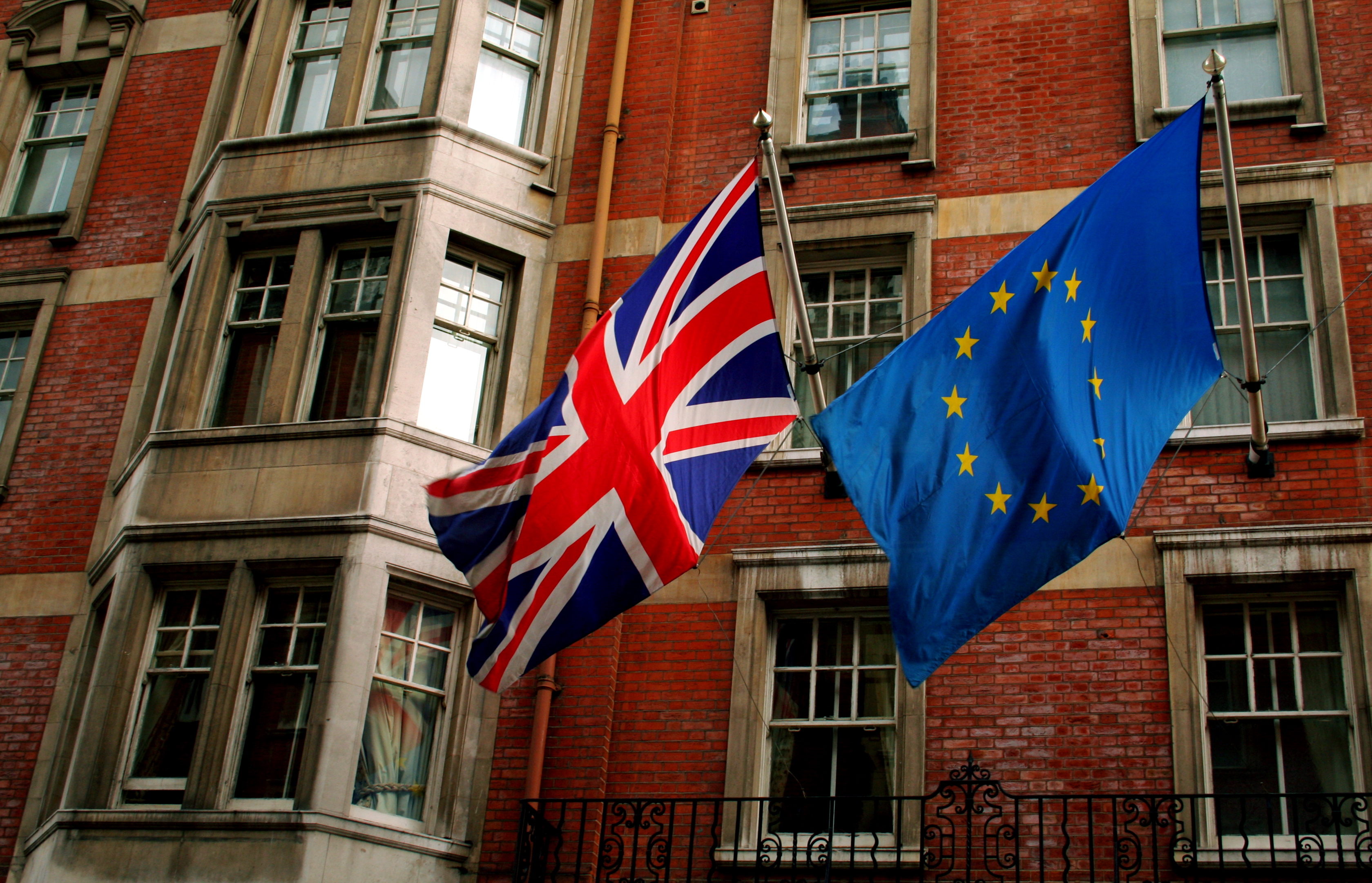The final communiqué of the meeting only stated that there took place just "exchange of views" and further work is expected in the period before the February summit. However, from the viewpoint of British Prime Minister David Cameron, the negotiations reached some success.
Before, Cameron has repeatedly stated that the officials who lead the technical negotiations on the requirements of London are mired in details. In his opinion, revision of the treaty with Great Britain, especially those points relating to EU labor migration, needs a political push and he's ready to do it, says the magazine The Economist.
During dinner with 27 other heads of governments, Cameron made a long speech (artfully written by advisers from Brussels and London), in which he listed changes occurred in the UK after its accession to the EU in 1973. He pointed to the British electorate’s growing discontent with the membership and his own concerns about that the citizens can vote for the exit from the EU at the referendum.
Cameron called on all those present in the hall to understand that a combination of some factors makes United Kingdom very attractive for a very large number of migrants from poorer countries of Eastern Europe. Among these factors are EU rules on freedom of movement, open labor market of Great Britain and its "free of fees" social security system, which includes financial aid to all low-wage workers.
One of Cameron’s senior advisors stated that the main aim of the contract’s revision is to stop the influx of migrants. That is why the Prime Minister proposes to cancel all benefits and privileges to visitors from other EU countries during their first four years of residence in the UK.
Yet, the problem is that almost all of Europe consider this proposal openly discriminatory. Cameron's team continue to insist on the four-year minimum, but unofficially admit that, most likely, they will require a different way of addressing this issue.
Thus, officials of the European Commission have to find a compromise acceptable to all before the February summit starts. Media aired several options, with "emergency brake" as a safe leader. The measure implies stopping the influx of migrants at a certain level, like with students from Austria and Germany, who flooded the local universities.
Migration is the most problematic part in the negotiations on the contract’s revision. Although, according to EU officials, the other three "baskets" (set of requirements) are going to be hard to settle, too. For example, many in Brussels do not like London calling on expanding rights of EU members not included in the eurozone, as well as amplifying role of national parliaments in defining European policy.
Meanwhile, European leaders are glad that Cameron demonstrates flexibility and willingness to compromise. Despite all the rhetoric and flatness, they believe that the Prime Minister really wants to keep Britain in the EU. Even current London's demand for migration is not as tough as last year, when the country asked to introduce mandatory quotas for labor migrants from Europe.
Opinion polls in the UK today show roughly equal numbers of supporters and opponents of the country's membership in the European Union. A possible compromise on the issue of migration is unlikely to dramatically change the balance in someone's side. At that, Cameron's inability to get Brussels to ban social benefits for foreigners can cause sharp criticism of the prime minister in the Conservative Party.
Therewith, experts admit that even a four-year ban couldn’t help to get rid of migrants flood. However, this does not mean that UK’s negotiations are meaningless. Cameron must show British voters that the EU, despite many shortcomings, remains the one-class club where the British can feel comfortable.
This goal is easier to achieve if Cameron declares his victory over Brussels - in other words, the EU's willingness to change the terms of membership of the United Kingdom. Moreover, the very conditions of the agreement would no longer be so important.
source: economist.com
Before, Cameron has repeatedly stated that the officials who lead the technical negotiations on the requirements of London are mired in details. In his opinion, revision of the treaty with Great Britain, especially those points relating to EU labor migration, needs a political push and he's ready to do it, says the magazine The Economist.
During dinner with 27 other heads of governments, Cameron made a long speech (artfully written by advisers from Brussels and London), in which he listed changes occurred in the UK after its accession to the EU in 1973. He pointed to the British electorate’s growing discontent with the membership and his own concerns about that the citizens can vote for the exit from the EU at the referendum.
Cameron called on all those present in the hall to understand that a combination of some factors makes United Kingdom very attractive for a very large number of migrants from poorer countries of Eastern Europe. Among these factors are EU rules on freedom of movement, open labor market of Great Britain and its "free of fees" social security system, which includes financial aid to all low-wage workers.
One of Cameron’s senior advisors stated that the main aim of the contract’s revision is to stop the influx of migrants. That is why the Prime Minister proposes to cancel all benefits and privileges to visitors from other EU countries during their first four years of residence in the UK.
Yet, the problem is that almost all of Europe consider this proposal openly discriminatory. Cameron's team continue to insist on the four-year minimum, but unofficially admit that, most likely, they will require a different way of addressing this issue.
Thus, officials of the European Commission have to find a compromise acceptable to all before the February summit starts. Media aired several options, with "emergency brake" as a safe leader. The measure implies stopping the influx of migrants at a certain level, like with students from Austria and Germany, who flooded the local universities.
Migration is the most problematic part in the negotiations on the contract’s revision. Although, according to EU officials, the other three "baskets" (set of requirements) are going to be hard to settle, too. For example, many in Brussels do not like London calling on expanding rights of EU members not included in the eurozone, as well as amplifying role of national parliaments in defining European policy.
Meanwhile, European leaders are glad that Cameron demonstrates flexibility and willingness to compromise. Despite all the rhetoric and flatness, they believe that the Prime Minister really wants to keep Britain in the EU. Even current London's demand for migration is not as tough as last year, when the country asked to introduce mandatory quotas for labor migrants from Europe.
Opinion polls in the UK today show roughly equal numbers of supporters and opponents of the country's membership in the European Union. A possible compromise on the issue of migration is unlikely to dramatically change the balance in someone's side. At that, Cameron's inability to get Brussels to ban social benefits for foreigners can cause sharp criticism of the prime minister in the Conservative Party.
Therewith, experts admit that even a four-year ban couldn’t help to get rid of migrants flood. However, this does not mean that UK’s negotiations are meaningless. Cameron must show British voters that the EU, despite many shortcomings, remains the one-class club where the British can feel comfortable.
This goal is easier to achieve if Cameron declares his victory over Brussels - in other words, the EU's willingness to change the terms of membership of the United Kingdom. Moreover, the very conditions of the agreement would no longer be so important.
source: economist.com



















